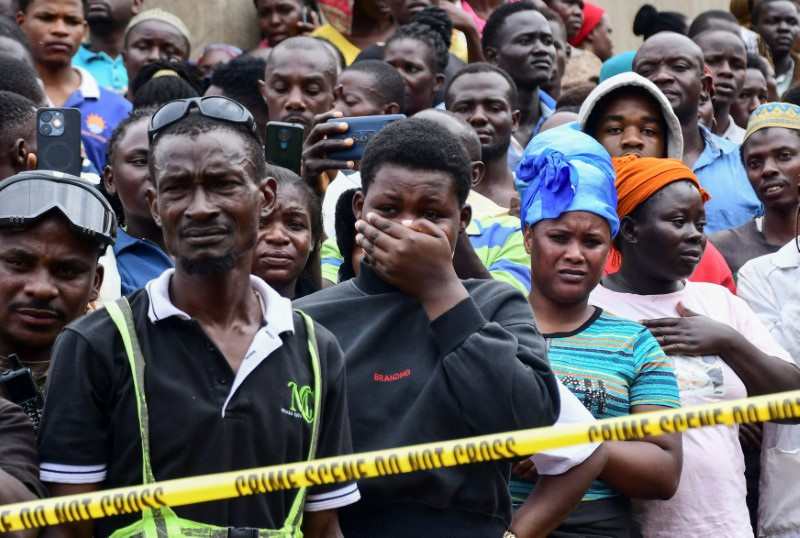The death toll has climbed to a grim 21 after a catastrophic landslide engulfed a vast garbage dump in Uganda’s bustling capital, Kampala. The disaster unfolded with horrifying speed late on Friday as a towering mound of waste at the city’s only landfill, known as Kiteezi, collapsed under the weight of recent torrential rains. The resulting landslide swept through homes on the periphery of the landfill, burying residents alive as they slept.
Rescue efforts are ongoing, with authorities frantically digging through the debris in search of survivors. So far, at least 14 people have been pulled from the wreckage, though the fate of others remains unknown, leaving families and rescuers alike teetering on the edge of hope and despair. The full scale of the devastation is still unclear, with more feared to be trapped beneath the suffocating layers of waste and earth.
In the aftermath, President Yoweri Museveni has issued a directive to the prime minister to spearhead the evacuation of all residents living dangerously close to the landfill. This site, having served as Kampala’s primary dump for decades, had grown into a veritable mountain of refuse, a monument to the city’s unmanaged waste problem. Residents have long voiced concerns about the perilous conditions, citing hazardous waste that seeps into their environment, turning their lives into a ticking time bomb.
The government has initiated an investigation into the causes of this catastrophe, with the Inspectorate of Government vowing to hold accountable any officials found guilty of negligence. But for the affected residents, these promises come too late.
The Red Cross has moved quickly to provide aid, setting up temporary shelters for those displaced by the landslide. But the question remains: how did it come to this? The slow bureaucratic process of procuring a new landfill site has dragged on for years, with efforts stymied by what many suspect is a toxic mix of corruption and inefficiency.
Tragically, this is not an isolated incident on the African continent. Just a few years ago, in 2017, a similar disaster in Ethiopia claimed the lives of 115 people when a garbage heap collapsed in Addis Ababa. In 2018, Mozambique mourned 17 lives lost in yet another landslide in the capital, Maputo. These incidents, scattered across the map, are connected by a common thread: the lethal consequences of poorly managed municipal waste, turning what should be the mundane disposal of refuse into an existential threat.
As Kampala reels from this latest tragedy, the hope is that this time, action will follow the rhetoric, and the lives lost will not be in vain.

